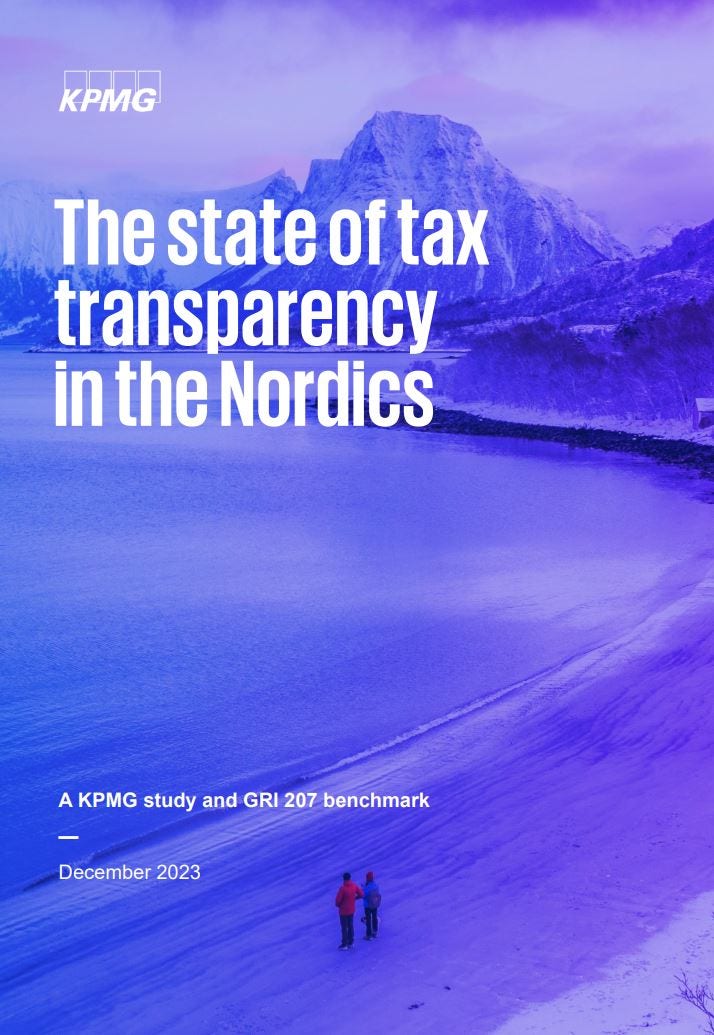In the past decade, companies’ approach to tax has increasingly been recognised as matter of public interest and as an indicator of responsible business conduct. This recognition, by the wider public and companies themselves, combined with the essential role of tax revenues in funding government action, achieving the United Nation’s Sustainable Development Goals, and now supporting the green transition, has led to a demand and expectation of transparency by companies on their tax contributions and responsible approach to tax.
The Nordic tax transparency landscape
Therefore, after analysing the annual reports, sustainability reports, tax policies, and separate tax reports from 151 listed and unlisted companies across Denmark, Finland, Iceland, Norway, and Sweden, we are presenting a snapshot of public tax reporting in the Nordics and how it compares to the expectations set out in GRI 207, the Global Reporting Initiative’s sustainability reporting standard for tax.
A study based on 151 companies
Together with our Nordic colleagues, we are providing you with this analysis of 151 companies in the Nordics giving great insights into the current state of tax transparency in the Nordics and for each country individually.
In 2019, (GRI) published a new standard on tax disclosure as part of their widely recognised sustainability reporting framework. GRI 207:TAX, the first ESG reporting standard for tax, sets expectations both on qualitative and quantitative tax disclosures and became applicable for GRI users for sustainability reporting on 1 January 2021.
The state of tax transparency in the Nordics
A KPMG study and GRI 207 benchmark report

Tax transparency in Denmark
For Denmark, we looked at the companies that form the OMX Copenhagen 25, the top-tier stock market index for Nasdaq Copenhagen, as well as some of the largest unlisted companies (by revenue and profit). The names of the 32 companies we assessed can be found in the appendix.
The main finding is that despite a relatively low number of companies reporting in accordance with GRI 207, compliance with the qualitative disclosure requirements was quite high. This is explained by the high number of companies with a public tax policy, and the relatively low number of companies not reporting on tax at all.
Get in touch
We are an experienced and specialised team of professionals with diverse backgrounds and skills in tax advisory, audit, accounting, energy & environmental taxation, risk management, data analytics, and sustainability reporting.
Related Content
Something went wrong
Oops!! Something went wrong, please try again
Subscribe to our Tax newsletter
Turn insight and events into opportunity with unique perspectives and actionable insights addressing tax matters. We cover everything from ESG and technologies to new tax legislation and financial services.


